BMW 7 Series vs VW Polo – Differences & prices compared
Compare performance, boot space, consumption and price in one view.
Find out now: which car is the better choice for you – BMW 7 Series or VW Polo?
The BMW 7 Series (Sedan) comes with a Plugin Hybrid or Diesel MHEV engine and Automatic transmission. In comparison, the VW Polo (Hatchback) features a Petrol engine with Manuel or Automatic transmission.
When it comes to boot capacity, the BMW 7 Series offers 540 L, while the VW Polo provides 351 L – depending on how much space you need. If you’re looking for more power, decide whether the 571 HP of the BMW 7 Series or the 207 HP of the VW Polo suits your needs better.
In terms of consumption, the values are 1 L per 100 km for the BMW 7 Series, and 5.10 L for the VW Polo.
Price-wise, the BMW 7 Series starts at 101300 £, while the VW Polo is available from 17000 £. Compare all the details and find out which model fits your lifestyle best!
BMW 7 Series
The BMW 7 Series represents the pinnacle of luxury and performance in the executive car segment, offering an unparalleled driving experience. Its elegant design combines aesthetic appeal with advanced technology, ensuring both comfort and connectivity for its passengers. With cutting-edge driver assistance systems, this flagship model showcases the brand's commitment to innovation and safety.
details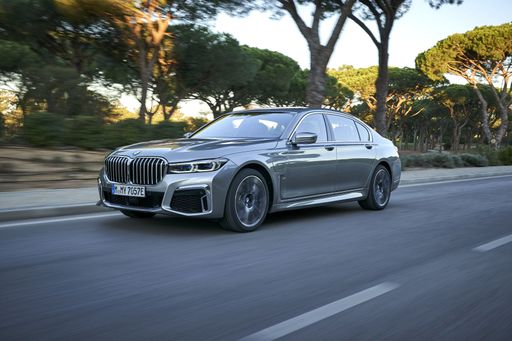 @ press.bmwgroup.com
@ press.bmwgroup.com
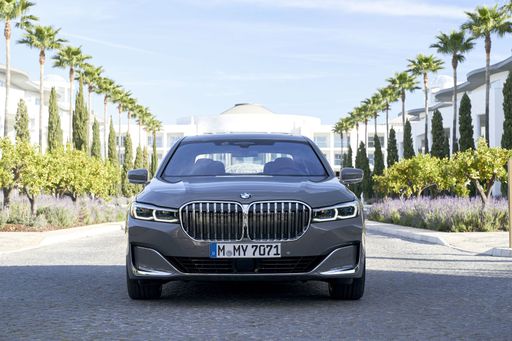 @ press.bmwgroup.com
@ press.bmwgroup.com
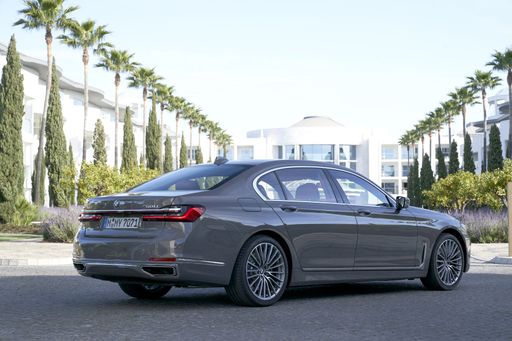 @ press.bmwgroup.com
@ press.bmwgroup.com
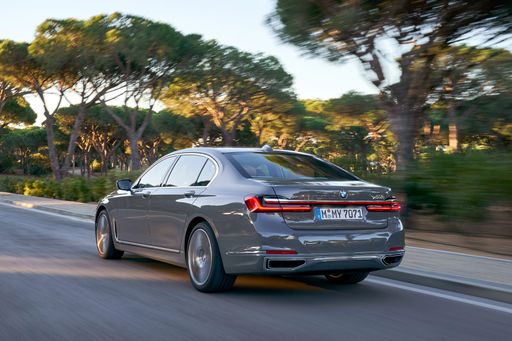 @ press.bmwgroup.com
@ press.bmwgroup.com
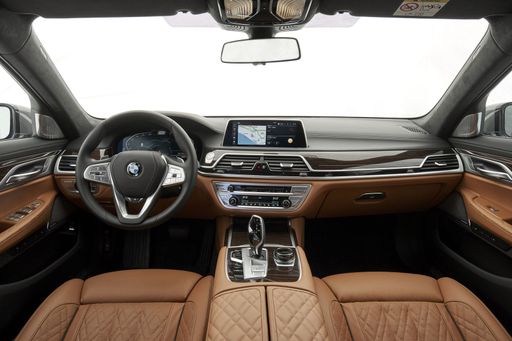 @ press.bmwgroup.com
@ press.bmwgroup.com
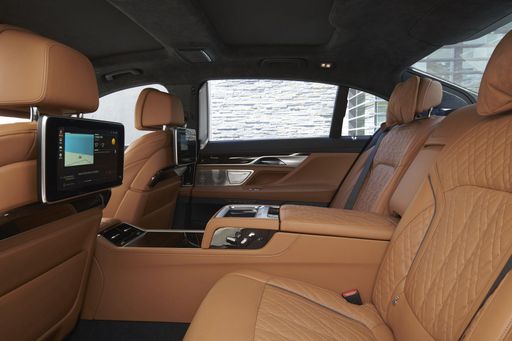 @ press.bmwgroup.com
@ press.bmwgroup.com
VW Polo
The VW Polo remains a popular choice in the compact car segment, known for its sleek design and sophisticated styling. Inside, it offers a surprisingly spacious cabin with high-quality materials and intuitive technology features, ensuring a comfortable driving experience. Its agile handling and responsive performance make it an excellent option for both city commuting and longer journeys.
details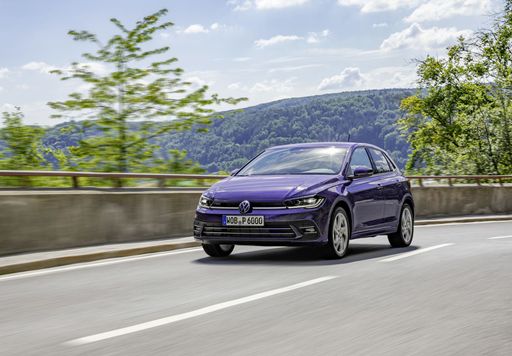 @ Volkswagen
@ Volkswagen
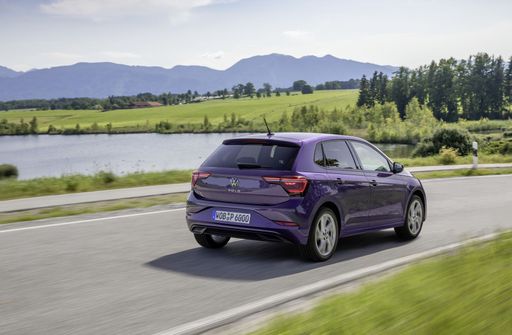 @ Volkswagen
@ Volkswagen
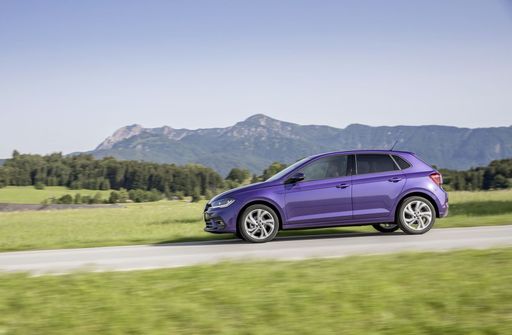 @ Volkswagen
@ Volkswagen
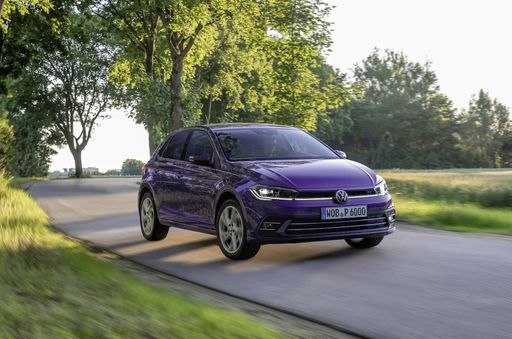 @ Volkswagen
@ Volkswagen
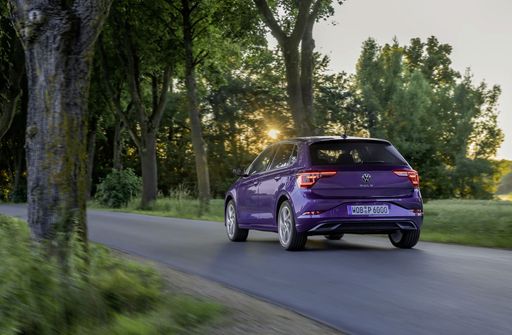 @ Volkswagen
@ Volkswagen
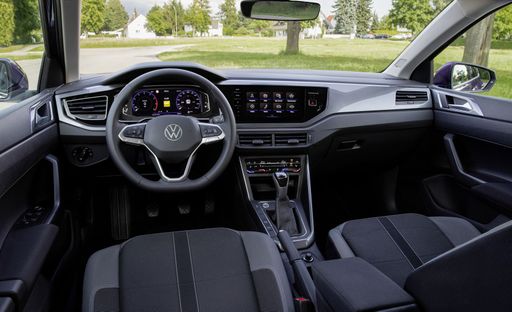 @ Volkswagen
@ Volkswagen

|

|
|
|
|
Costs and Consumption |
|
|---|---|
|
Price
101300 - 127300 £
|
Price
17000 - 30400 £
|
|
Consumption L/100km
1 - 6.1 L
|
Consumption L/100km
5.1 - 6.5 L
|
|
Consumption kWh/100km
-
|
Consumption kWh/100km
-
|
|
Electric Range
80 km
|
Electric Range
-
|
|
Battery Capacity
17.60 kWh
|
Battery Capacity
-
|
|
co2
23 - 160 g/km
|
co2
116 - 148 g/km
|
|
Fuel tank capacity
65 - 74 L
|
Fuel tank capacity
40 L
|
Dimensions and Body |
|
|---|---|
|
Body Type
Sedan
|
Body Type
Hatchback
|
|
Seats
5
|
Seats
5
|
|
Doors
4
|
Doors
5
|
|
Curb weight
2255 - 2525 kg
|
Curb weight
1143 - 1378 kg
|
|
Trunk capacity
525 - 540 L
|
Trunk capacity
351 L
|
|
Length
5391 mm
|
Length
4074 mm
|
|
Width
1950 mm
|
Width
1751 mm
|
|
Height
1544 mm
|
Height
1431 - 1451 mm
|
|
Payload
605 - 665 kg
|
Payload
432 - 457 kg
|
Engine and Performance |
|
|---|---|
|
Engine Type
Plugin Hybrid, Diesel MHEV
|
Engine Type
Petrol
|
|
Transmission
Automatic
|
Transmission
Manuel, Automatic
|
|
Transmission Detail
Automatic Gearbox
|
Transmission Detail
Manual Gearbox, Dual-Clutch Automatic
|
|
Drive Type
All-Wheel Drive
|
Drive Type
Front-Wheel Drive
|
|
Power HP
300 - 571 HP
|
Power HP
80 - 207 HP
|
|
Acceleration 0-100km/h
4.3 - 5.8 s
|
Acceleration 0-100km/h
6.5 - 15.6 s
|
|
Max Speed
250 km/h
|
Max Speed
171 - 240 km/h
|
|
Torque
670 - 800 Nm
|
Torque
93 - 320 Nm
|
|
Number of Cylinders
6
|
Number of Cylinders
3 - 4
|
|
Power kW
220 - 420 kW
|
Power kW
59 - 152 kW
|
|
Engine capacity
2993 - 2998 cm3
|
Engine capacity
999 - 1984 cm3
|
General |
|
|---|---|
|
Model Year
2023 - 2024
|
Model Year
2024 - 2025
|
|
CO2 Efficiency Class
B, F
|
CO2 Efficiency Class
D, E
|
|
Brand
BMW
|
Brand
VW
|
BMW 7 Series
Introduction to the BMW 7 Series
The BMW 7 Series has long been synonymous with luxury, performance, and cutting-edge technology. The latest versions continue this tradition, integrating sophisticated hybrid technology with distinguished design and powerful performance. Whether cruising the motorway or navigating urban landscapes, the BMW 7 Series offers an exceptional driving experience.
Technical Specifications
The 2023 BMW 7 Series boasts a range of impressive specifications and features. The engine options, which include both diesel mild-hybrid and plug-in hybrid variants, provide flexibility for different driving needs. With power outputs ranging from 300 PS to a remarkable 571 PS, the 7 Series does not compromise on performance. Coupled with intelligent all-wheel drive and an automatic transmission, it assures smooth and responsive handling.
Fuel efficiency is another highlight, with the series achieving consumption figures as low as 1.1 L/100km for the plug-in hybrid models, showcasing the brand's commitment to sustainability without sacrificing performance.
Advanced Hybrid Technology
The integration of mild-hybrid and plug-in hybrid systems into the 7 Series marks a significant advancement in BMW's pursuit of greener motoring. The plug-in hybrid variants, with a battery capacity of 18.7 kWh, offer an all-electric range of up to 79 km - ideal for city driving. This hybrid setup not only reduces emissions but also enhances acceleration, delivering a swift 0-100 km/h time ranging from 4.3 to 5.8 seconds.
Luxury and Comfort
The BMW 7 Series epitomises luxury, featuring an interior designed for comfort and convenience. Standard equipment includes high-grade materials, advanced connectivity, and cutting-edge infotainment systems. The cabin is spacious, with ample room for five passengers and a generous boot capacity of up to 540 litres, ensuring that long journeys are as comfortable as they are efficient.
Safety and Innovation
Safety remains paramount in the BMW 7 Series, with an array of features designed to protect occupants and enhance driving confidence. This includes state-of-the-art driver assistance systems, which provide support in various driving conditions, thus ensuring a safer driving experience.
In conclusion, the BMW 7 Series stands as a testament to automotive innovation, blending traditional luxury with modern efficiency and performance. It's a fine choice for those who seek the pinnacle of automotive engineering and technology.
VW Polo
Unveiling the VW Polo: A Compact Car with Big Ambition
The VW Polo, with its sleek hatchback design, stands out in the compact car segment, offering a blend of practicality and innovation. Volkswagen has continued to refine this popular model, ensuring that each new iteration provides cutting-edge technology and enhanced driving dynamics.
A Closer Look at the Mechanics
Under the bonnet, the VW Polo offers a series of efficient petrol engines ranging from 80 to 207 horsepower. These engines, coupled with either a manual or dual-clutch automatic transmission, provide a smooth and responsive driving experience tailored to various driving preferences.
Efficiency Meets Performance
The fuel consumption of the VW Polo is impressively economical, varying between 5.2 and 6.5 litres per 100 km, depending on the engine and transmission combination. Emphasising the car's commitment to sustainability, the CO2 emissions vary between 118 to 149 g/km, placing it within the D to E efficiency classes.
Design and Dimensions
The Polo's dimensions, featuring a length of 4074 mm, width of 1751 mm, and a height ranging from 1431 to 1451 mm, offer a compact profile ideal for urban driving. Despite its size, the Polo provides a generous 351-litre boot space, catering to everyday needs and beyond. With a five-door configuration, it balances convenience and style.
Advanced Features and Variants
The VW Polo 2024 model year comes with a variety of trim levels, from the practical "Life" to the sportier "R-Line", each bringing distinct features and enhancements. High-tech interiors, usability enhancements, and a host of driver-assistance systems are standard, reflecting Volkswagen's dedication to integrating innovation into its vehicles.
Tech-Savvy Interiors
Inside, the Polo is equipped with modern infotainment systems, Apple CarPlay, Android Auto, and wireless connectivity options, ensuring that drivers and passengers remain connected while on the move. The ergonomically designed cabin and digital cockpit enhance the user experience, making every drive comfortable and intuitive.
Conclusion: The All-Rounder in the Compact Car Market
The VW Polo continues to be a compelling choice for those seeking a compact, reliable, and technologically advanced vehicle. With its range of engines, well-appointed interiors, and a robust suite of features, the Polo remains a significant player in its class, meeting the demands of a wide range of drivers.
The prices and data displayed are estimates based on German list prices and may vary by country. This information is not legally binding.
